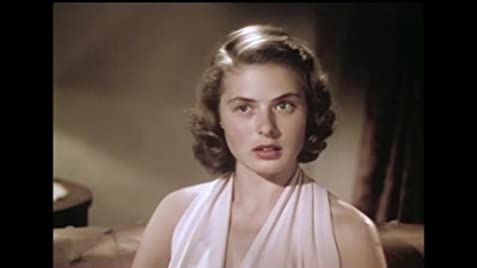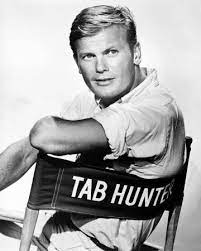I grew up in a gender-neutral household, the only daughter with five brothers. You might have thought my mother would have doted on her only daughter, but she never singled me out with any advice on what it meant to be feminine. She never said to me, “Oh, you look so cute in that dress, let’s put a bow in your hair.” I don’t recall watching her get dressed for a party, gazing in the mirror, patting her hair, daubing on make-up, discussing which dress and shoes to wear. She would scrape a comb across her hair, take a quick look in the mirror, grab her purse and she was ready to go. The purse only contained nail file and a tube of ChapStick – so distinct from the bulging purses of other mothers. I could understand the ChapStick but the nail file mystified me. What fingernail emergencies could occur at a dinner party? She told me that it had been there for years and she figured she might as well leave it there.
Other mothers might refer to the “beauty parlor.” My mother called it the “beauty store,” as if beauty was not innate, it was a commodity that could be purchased. She only went to the beauty store for haircuts, never perms or dye jobs. This was in the 1960’s when Clairol’s slogan was “Only your hairdresser knows for sure,” when the dark roots would be a social catastrophe. She told me, “Once you fall into that dye pot, you’ll never get out.” I had seen TV moms, June Cleaver among them, and maybe Donna Reed. They looked nothing like my mother.
My mother’s identity was based on sports. She taught all her children how to ice skate and ski, play tennis (her favorite sport), how to throw a spiral football, and baseball, including its arcane rules. These were the activities that were interesting to her. I followed her lead. At age eight, I could recite the infield fly rule, a balk, and dropped third strike. In later years I discovered that the ability to talk sports with men was a social asset. I wonder whether she thought the same.
Music and word play were her other great talents. She often arrived at a party with her guitar ready to serenade the hosts with a tailor-made ditty. I never heard my father say, “Fan you look lovely tonight.” He mostly felt anxious that my mother might embarrass him with her clever and irreverent humor. As a preteen I asked her what the word “sexy” meant. She told me that a sexy woman was funny and could make men laugh.
With no other social cues from older sisters or aunts, my looks, whatever they might be, didn’t become part of my identity. My routine was the same as my mother’s. I only looked into the mirror for a perfunctory comb and quick check to ensure a straight part. As a kindergartner, I could wear pants, but in middle school, girls had to wear skirts or jumpers, oxford shoes and bobby socks. I rotated a small stable of outfits, but I never cared what I was wearing on any given day, never expecting, or receiving, any comment on my physical appearance. I was a good student and a decent athlete, which was enough.
I began to sense a few cracks, a growing realization that looks did count for a bit of something. It sounded like a joke when she told me that people said she looked like Ingrid Bergman and my father looked like the 1950s heartthrob Tab Hunter. I had no idea who the actress was but assumed that all movie stars must be beautiful. There was pride in her voice, implying that she was pretty enough to land a heart throb as a husband. A few days ago, I was sifting through some family albums and found a picture of the two of them taken at their 1950 wedding.
Well, there it is. Yes, I can see it now. Wow. Who knew?
But these glamour shots are not my memory of my mother, which took shape in the 1960s after she had six children in ten years, when the beauty parlor became the beauty store, and getting six children fed and clothed was a consuming challenge. I’m guessing that any pride in her looks were superseded her maintenance-free identity as a witty and clever woman, an athlete and a musician. One day she came home from the grocery store and announced that Debbie had “let herself go.” She told me Debbie was no longer one of the town’s beauties. I sensed her delight that her identity as an accomplished and interesting woman was timeless. Beauty was ephemeral.
My suburban grade school was utterly homogeneous, white, Christian, affluent. I had no tools to evaluate my classmates’ looks, particularly since everyone looked similar and wore the same range of clothes. Some were taller, some had blond or brown hair (one red head was an outlier), but beyond that I was clueless. Sure, I realized that there was a spectrum, with knock ‘em dead movie star looks stretching off to the right and presumably a circus-grade ugly look on the left. I had heard whispers that Lisa was the prettiest girl in our grade, but I had no idea why. Maybe her thick blond hair pushed her a smidge to the right on the spectrum, but as far as I could tell everyone clustered at the mid-point with minimal deviation.
This was my status at age 10 or 11, when I arrived at Hillaway, my first sleep away camp.
My bunkmate Nancy was unhappy with her assignment in our cabin. She was a returning camper, a few months older than the rest of us, desperate to be in the “Old Timers” cabin, a more prestigious cabin in a plum location on the way to the horse barn. As I looked at Nancy sitting cross-legged in her top bunk, the spectrum of looks crystallized into sharp focus. Nancy did not cluster in the middle, well beyond a smidge. I distinctly remember her angular face, pocky complexion and most particularly her sharp nose and cavernous nostrils. I did not know why Lisa was said to be pretty, but all on my own I could figure out that Nancy was, let’s face it, far off to the left. She did have a singular talent – her whistle, a loud, piercing whistle that carried across the lake. I thought, maybe she looks at herself in the mirror and thinks “I might not be the most beautiful person in the world, but my whistle makes up for that. I am special. I am an individual.”
I wanted that whistle. The entire cabin of girls wanted that whistle, wanted to be as unique as Nancy. I imitated her technique, putting my thumb and index finger in a semi-circle on my tongue. I blew until overcome with dizziness. I slid my fingers around my tongue, adjusted the fold of my tongue and then different combinations of fingers. I was ready to give up. And then it happened. A loud piercing whistle erupted with such force that it threw me back on the bed. Its horsepower, timbre, and general greatness far surpassed Nancy’s. My whistle reverberated through the cabin and ripped across the lake. The other campers cheered. Nancy sulked. She no longer had sole possession of her special gift. I had stolen it.
That whistle remains a signature part of my identity. I have used it at sporting events, to hail cabs, to find someone in the Costco parking lot and is the best thing to come out of Hillaway camp. The rest of camp was forgettable, I hated horseback riding, sucked at archery, and didn’t pass the swim test and wasn’t allowed to swim out to the raft. It was worth every penny. I still get compliments on my whistle. .
When I got home, my mother immediately recognized the whistle’s importance. She was jealous. I tried to teach it to her for the next 65 years, but she never mastered it.
Follow Liza Blue on:Share:




Lovely story.
Thanks for sharing it.